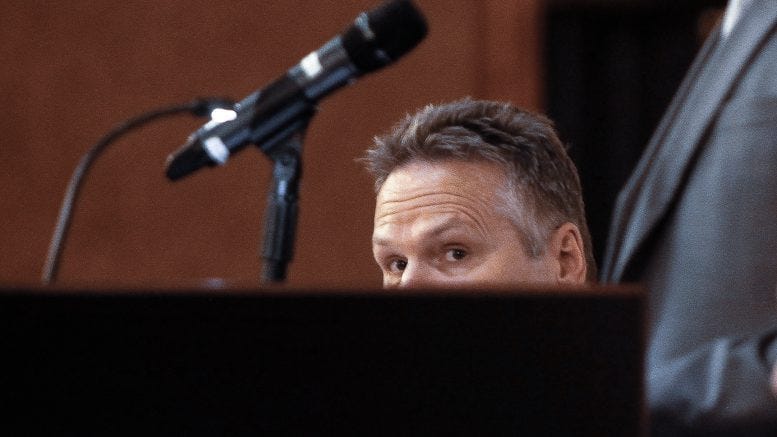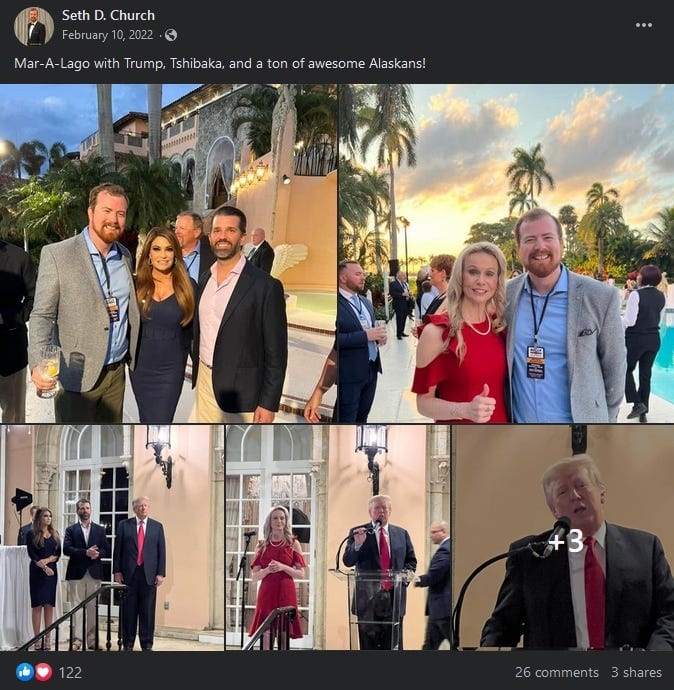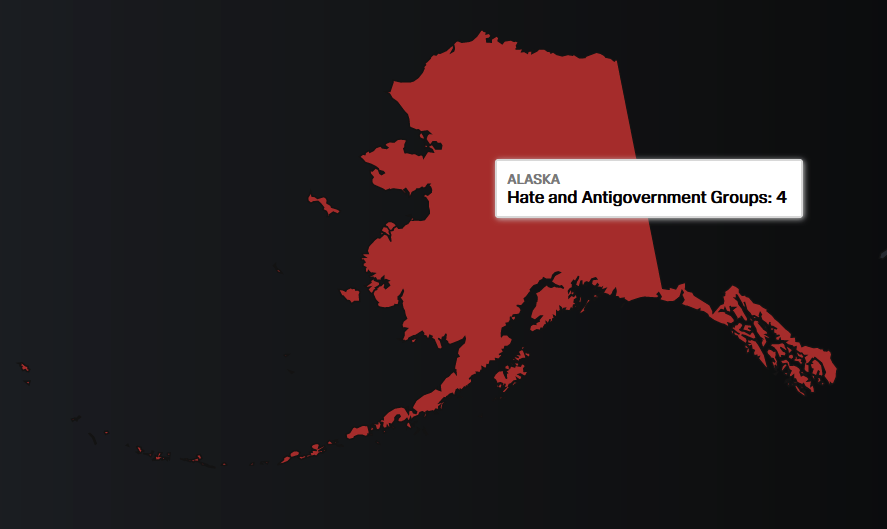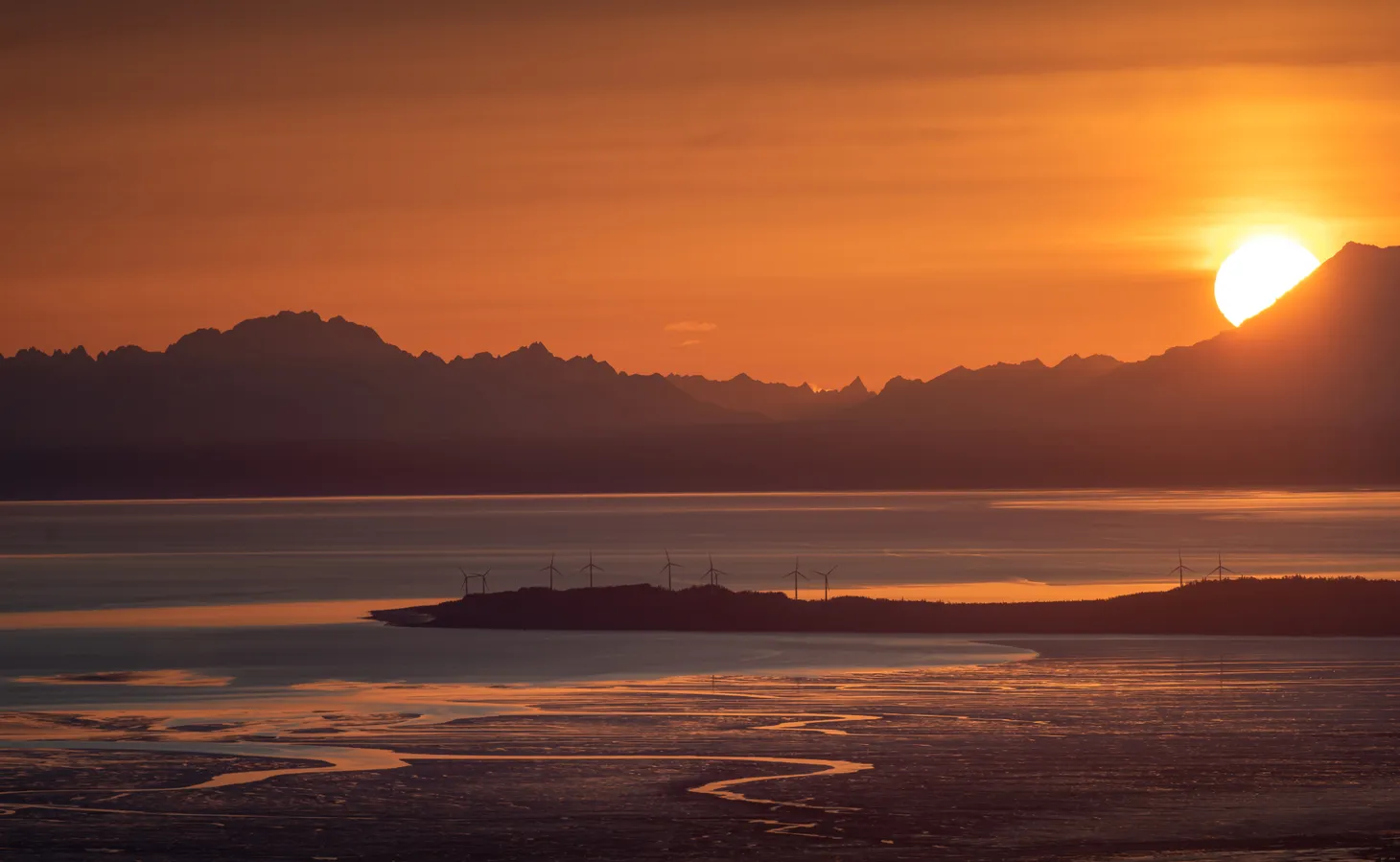A veto for what? A look at Dunleavy's attack on education
Hmmm. Seems like a trend.

Happy First Friday of Summer, Alaska!
In this edition: It’s not looking like there are the votes for an immediate override of the governor’s vetoes, but there’s enough political and public pressure to keep the issue alive for when legislators meet next. Hopefully, legislators and the public will be able to get some answers about just what the governor—who ducked the usual news conference and has refused to answer questions—was hoping to accomplish by vetoing some $140 million in education-related spending when the state budget is already on track to be balanced. Probably nothing to do with the two other stories in this Friday’s memo: The governor appointed another right-wing activist to the University of Alaska’s Board of Regents, and two “parental rights” groups made the Southern Poverty Law Center’s list of hate and anti-government groups they tracked in 2022. Also, to round out the week, we’ve got the reading list and weekend watching.
Current mood: ☁️
Veto for what?

A growing number of legislators, including Senate President Gary Stevens, support the long-shot effort to override Gov. Mike Dunleavy’s veto of $87.5 million of K-12 funding. It’s a long shot because, under the three-quarter threshold for an override of a budget veto, it takes just 16 of the 60 legislators to block one. According to polling done by the Alaska Beacon, the number of legislators not interested in taking action to reverse the vetoes currently sits somewhere between 21 and 26 legislators. Still, that’s likely not the end of the debate.
What’s interesting about the current state of things is seeing Senate President Stevens so openly putting his support behind the override and call for a special session. That, along with the public pushback and pressure, means the issue isn’t likely to go away anytime soon, hopefully forcing the governor and his supporters to explain precisely why they support cutting back the increase to school funding after a session that displayed broad bipartisan support for schools.
Setting aside the very real-world impacts that schools will feel from the smaller-than-expected increase in state funding, what’s particularly frustrating about the whole situation is just how little insight we—or the legislators—have into the reasoning behind the governor’s vetoes of everything from education funding (which crosses the $140 million mark once you count the vetoes of funding for K-12 schools, the Alaska Native Science and Engineering Program, early education grants and maintenance for both K-12 schools and the University of Alaska) to public radio to salmon bycatch studies and the Alaska Marine Highway System.
I’ve been talking with some legislators this week, and frustration and confusion seem to be the going takeaway (well, aside from outright anger). Frustration that the governor was largely absent from the public debate on school funding—beyond, of course, from introducing and immediately abandoning a proposal to pay dividends to teachers who teach through a whole year—to only throw a bomb like this long after adjournment. And confusion about what exactly he’s trying to achieve with these cuts.
The budget produced by the Legislature this year emerged with a roughly $100 million surplus (if oil prices stay on the forecast) that, while tight, was a far cry better than the more than $1 billion deficit if the Legislature stuck with the governor’s ask on the PFD. The vetoes grow that surplus to about $300 million, giving the State just a few more dollars worth of breathing room in oil prices.
If it’s part of a plan to force legislators to work together on a more durable fiscal plan—potentially at the much-talked-about-yet-still-unofficial October special session—then that’d be news to the legislators, at least the ones I’ve talked with.
Perhaps it was a mistake! After all, the governor did ask the Legislature for a do-over in 2021 after he forgot to veto a $4 billion transfer into the constitutionally protected Alaska Permanent Fund corpus (the Legislature told him to kick rocks).
Maybe it’s political retribution because, hey, we see other hints of that in the vetoes of capital budget earmarks belonging to legislators who voted against the budget. The vetoes hit $1.5 million for a cemetery project in Eagle River Rep. Jamie Allard’s district, nearly $2 million in road projects for the districts of South Anchorage Republican Reps. Julie Coulombe and Laddie Shaw, and almost $1.5 million in various projects in the districts of Kenai Republican Reps. Sarah Vance and Justin Ruffridge.
All that aside, as I discussed in my last write-up, the vetoes aren’t exactly all that pro-family for a governor who made making Alaska the most pro-life and pro-family State in the country the call of his annual State of the State address. It was the sort of bland statement that welcomed everyone to read what they wanted into it, but it was a message tailored for an audience where pro-life is being rebranded into pro-family.
It’s no coincidence that the one significant piece of broadly popular, truly pro-family measures introduced by the Dunleavy administration—extending postpartum health coverage for mothers and their children to a full year—was being introduced by GOP governors throughout the country… only after years of rejecting it.
The reality is that anti-abortion politics aren’t nearly as popular as they once were and certainly not as popular in a post-Roe world where decades of rhetoric are being turned into a cruel reality. The governor’s speech came on the heels of a midterm election that was disastrous for Republicans and especially for many anti-abortion causes at the polls, including the Dunleavy-backed attempt to open the Alaska Constitution to a convention to rewrite the State’s right to privacy.
It’s through the governor’s fictitious Office of Family and Life, helmed by now-former policy advisor Jeremy “divorce is worse than rape” Cubas, that the picture of the governor’s real goals is on display. In his video to the Alaska Family Council, Cubas can barely make it through the introduction before going all-in on his anti-abortion message. There’s no mention of good-paying jobs, child care, education or anything that most of us would think about when we think about “pro-family” policies, just base-riling rhetoric about the “insane ideologies” of the left.
“I’m here to tell you what the governor is working on towards the fight for the right to life,” Cubas said, complaining about the Alaska Constitution, the Alaska Court system and how the culture has shifted away from right-wing weirdos, throwing in a bit of fear over transgender youth. “They have convinced many that it’s not only OK to kill your child but to shout your abortion as if it’s a virtue. The governor wants to offer a counternarrative to that, a true narrative grounded in reality. He wants to change the culture in order to change the politics.”
It’s impossible to separate the governor’s action on the veto from the broader far-right efforts to undermine public education, whether it be through deeply divisive trumped-up attacks on inclusivity in schools or be it through the push to divert public funds to private and religious schools, which was one of the few legislative priorities of state Sen. Mike Dunleavy. As long as schools stay in crisis, the longer the governor and his allies can use it to push “reforms” on schools.
Or, at least, that’s my best guess because Dunleavy’s not talking.
What’s next
To be clear, there’s bipartisan support in both the Senate and House for a permanent increase in education funding. And if not for the procedural maneuvering of the House’s Dunleavy-aligned leadership in the final days of the legislative session, the Legislature may have very well sent a bill to the governor’s desk to raise the base student allocation.
Even some people who are resistant to an immediate veto override—fearing further division and political tantrums by the governor—have expressed that making the increase permanent is at the top of the priority list.
However, would the governor also veto that? Looks like he’ll keep us guessing.
The Alaska Memo by Matt Buxton is a reader-supported publication. To receive new posts and support my work, consider becoming a free or paid subscriber.
Dunleavy appoints yet another GOP ally to the Board of Regents
Hot off the heels of his appointment of Tuckerman Babcock, Gov. Mike Dunleavy continued to reshape the University of Alaska’s Board of Regents this week with the appointment of another Republican activist. This time it’s Fairbanks businessman Seth Church—who not only doesn’t have a degree from the University of Alaska, according to the Anchorage Daily News’ report, but has no college degree at all.
Church has given a good chunk of money to Republican candidates, but his biggest claim to fame in Alaska politics is as the head of the independent expenditure group Alaska Policy Partners. The group was active in the 2022 elections with laughably bad mailers targeting Democrats and moderate Republicans and will be hosting a $15,000-per-head fundraiser where time with Attorney General Treg Taylor will be the main attraction.
On social media, Church has posts celebrating the overturning of Roe v. Wade, attacking Alaska U.S. Sen. Lisa Murkowski for supporting the confirmation of Supreme Court Justice Ketanji Brown Jackson and several posts of right-wing news stories about Hunter Biden. He also has pictures of attending Mar-A-Lago when Trump hosted a fundraiser for Republican candidate for U.S. Senate Kelly Tshibaka.

The University of Alaska has long been a punching bag for Dunleavy, targeted with some of the deepest cuts of any contained in the governor’s 2019 vetoes. Those cuts were scaled back and replaced, instead, with roughly the same amount spread out over several years. This year, the governor vetoed tens of millions of dollars the Legislature put in the budget to support maintenance projects at campuses across the State.
Church will join fellow GOP activist Tuckerman Babcock, Dunleavy’s former chief of staff who helped architect the loyalty pledge firings, on the Board of Regents, which is responsible for setting policy and the budget for the university system. It’s an eight-year term if the Legislature ultimately confirms them, which doesn’t seem particularly likely, at least when it comes to Babcock.
The Alaska Legislature rejected the governor’s appointment of far-right Republican Bethany Marcum earlier this year, with several legislators arguing that she was the wrong fit for the job because she praised the governor’s 2019 vetoes as the head of the right-wing Alaska Policy Forum. Church also happened to serve on the Alaska Policy Forum’s Board of Directors.
Why it matters: Aside from the ongoing attack on public grade schools, Republicans have also spent a great deal of attention and political effort attacking college campuses under the premise that they’re bastions of liberal indoctrination. Florida has been a leader on that front with Gov. Ron Desantis with a national faculty group accusing the governor and the state legislature of an “unparalleled” attack on higher education that seeks to enforce a heavy hand over how the state universities are run and what they’re allowed to teach.
The Legislature could reject both Church and Babcock, but both will get to serve and weigh in on decisions on how to run the University of Alaska until then. The Legislature typically doesn’t weigh in on appointments until late in the session.
Two Alaska ‘parental rights’ groups labeled as anti-government by SPLC

Two Alaska groups operating under the banner of “parental rights”—the same movement Gov. Mike Dunleavy touted when he introduced his version of Florida’s “Don’t say ‘gay’” bill this year—have the ignoble distinction of being one-half of all the hate and anti-government groups tracked by the Southern Poverty Law Center in the State during 2022. Those groups are Alaska Parents Involved in Education and Parents’ Rights in Education - Alaska, which appear to be offshoots of national organizations (the others being the Asatru Folk Assembly and the National Assembly).
The SPLC recently released its overview of hate and extremism in 2022, focusing on how “the hard-right movement mobilized hate and extremism from the mainstream to the main street.” In a corresponding article drilling into the issue, SPLC authors Cassie Miller and Caleb Kiefer examine how movements borne out of resistance to covid-19 measures and Trump’s election loss have morphed into a campaign targeting schools with messages that are frequently racist, anti-LGBTQ or both.
“Schools, especially, have been on the receiving end of ramped-up and coordinated hard-right attacks, frequently through the guise of ‘parents’ rights’ groups,” they write. “These groups were, in part, spurred by the right-wing backlash to COVID-19 public safety measures in schools. But they have grown into an anti-student inclusion movement that targets any inclusive curriculum that contains discussions of race, discrimination and LGBTQ identities.”
They also recognize that much of this movement—instituting racist or anti-LGBTQ policies under the guise of protecting the children—isn’t exactly a new phenomenon, but that this movement has taken it to a new level.
“Galvanizing supporters around supposed ‘parental rights’ and ‘family values’ is nothing new – similar rallying cries were adopted by those who opposed school desegregation during the civil rights movement and by the Moral Majority of the 1980s. These political slogans have been used repeatedly because they are effective, framing the organizing of far-right activists as something done solely out of real concern for children,” they explain, adding, “But Moms for Liberty activities make it clear that the group’s primary goals are to fuel right-wing hysteria and to make the world a less comfortable or safe place for certain students – primarily those who are Black, LGBTQ or who come from LGBTQ families.”
Skimming the Facebook pages of the groups and you’ll mostly find posts drumming up fear over LGBTQ students and issues in schools—including Rep. Jamie Allard asking for the identity of an assistant superintendent hosting a trans youth support group—with a smattering of posts promoting home schools or other alternative schooling programs.
The Alaska Memo by Matt Buxton is a reader-supported publication. To receive new posts and support my work, consider becoming a free or paid subscriber.
Reading list
- I’ve got the briefings in my reading list, but here’s a good overview of the upcoming Alaska Supreme Court case challenging the confidentiality around the sale of BP’s Alaska assets to Hilcorp in 2020. From the ADN: Alaska Supreme Court to hear arguments in fight by Valdez to unlock Hilcorp financial data
- The Legislature doesn’t look like it has the numbers for an immediate special session to override the governor’s education veto. From the Beacon: Alaska legislators lack the votes to override Gov. Mike Dunleavy’s budget vetoes
- Looks like construction on the Sterling Highway could drag out even longer. From KDLL: Cooper Landing Bypass could be stalled by funding shortfall, says project manager
- After a run of sexual misconduct from its staff members, the Kenai Peninsula Borough School District says it’s making progress. From the Peninsula Clarion: Amid misconduct allegations, new district policies promise diligence
- The Anchorage Assembly put a hold on Mayor Dave Bronson’s boondoggle of a navigation center after some of the most fundamental questions—like where they’d be getting the money—went unanswered. From Alaska Public Media: Anchorage Assembly delays vote on putting $11M towards homeless navigation center
Weekend watching
A few weeks ago, Stanley Kubrick’s “The Shining” was back in social media threads after this YouTuber caught onto a weird, deliberate and unnerving detail.
Have a nice weekend, y’all.
The Alaska Memo Newsletter
Join the newsletter to receive the latest updates in your inbox.




